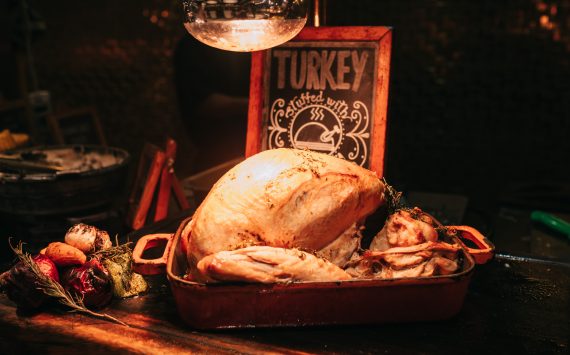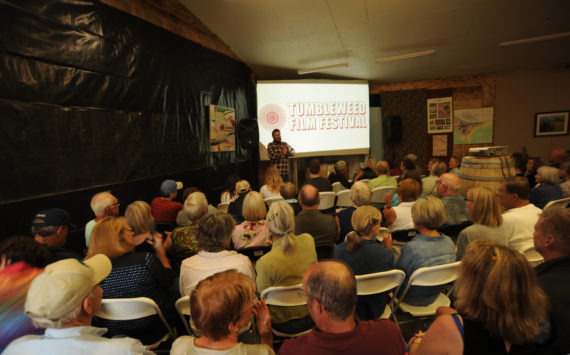Opinion by Daniel Clayton
If you think it’s a challenge for Oroville to thrive economically these days, imagine trying to be an independent book store in the digital age of Amazon and e-books.
About 30 percent of all books sold these days are e-books. That’s 30 percent of a book store’s potential business, out the brick-and-mortar window. Factor in the near-infinite selection of discounted books on websites like Amazon, and you’ve got a recipe to shake up an industry.

How could any physical book store even compete?
Are they all doomed to just dry up and disappear?
Some would say so.
Yet many book stores aren’t just surviving – they’re thriving! And their unexpected success holds lessons for regions like North County, suggesting ways that our towns can likewise blossom in changing environments.
The first crossover success strategy might seem both counterintuitive and obvious. How are brick-and-mortar book stores competing with online retailers? By selling online!
Small book stores are plugging in online to sell through markets like eBay and Amazon’s “used and new” marketplace. Stores reach a huge new audience on these websites, and since they can sell extra books without sacrificing in-store shelf space, they can turn profit with lower sales prices. Most importantly – and most relevant to our towns – selling online allows these stores to diversify their income, making them more stable in shifting conditions. The local economy might bounce up and down, but consistent sales online help keep the stores afloat when the waves gets rough.
Plus, online sales can be surprisingly lucrative. Amanda Lynch, co-owner of Jackson Street Booksellers in Omaha, Nebraska, notes that some days her store does more business online than in-store – with about 30-40 percent of total business online.
So what’s the equivalent for Oroville and the North County?
Online jobs for individuals, online sales for businesses.
Get-rich-quick internet scams are a dime a dozen. But there are also endless legitimate income opportunities – from audio transcription and digital call centers, to creative design and content-creation, to blogging and affiliate marketing. North County residents could either pursue full-time employment online, or more casual part-time supplementary income.
Local businesses can also boost and stabilize their profits with online sales. Thrift stores can make a surprisingly large buck on eBay, retailers can sell merchandise online – even restaurants can sell special products or gift cards.
World of Gaia, a supplier of crystals, stones, jewelry, and more, is one such local business thriving online. In addition to the brick-and-mortar store on Oroville’s Main Street, owner Cecilia Ray also maintains an eBay storefront that has been active online for over a decade. With about 90 percent of their business coming through the Internet, Ray knows the value of online retail. “Finding a niche online is the key,” Ray suggests. “Branding is really important too – if there’s a product you can brand, make it special and unique, then people will start recognizing you.” Brand loyalty is a major driving factor of consumer habits, and is increasingly fostered online.
Online sales aren’t just good for a business – they’re good for our region as a whole. Dollar-for-dollar, income coming into our towns from online sales is as valuable as tourism dollars. Both represent money entering the local economy from the outside.
So how else are some book stores thriving in ways we can emulate?
Digital outreach, to promote events and get more people in the door.
It’s no secret that special events are a book store’s key to success. Author readings and signings have long been a main attraction to draw in customers. Special guest lectures do the same, as well as book club groups, reading marathons, theme days, and more.
But even with fantastic events, book stores won’t thrive economically if only the same loyal and local customers attend (sound familiar?). A store might book Stephen King or J. K. Rowling to do a reading, but if only 10 local friends come and no books are sold, it’s hard to call it a success!
So what are book stores doing?
Online outreach, to bring those new customers in.
For most book stores, websites and Facebook pages are the avenues of choice. In a small town setting, local residents can rely on word-of-mouth and personal experience to know where they want to spend their money. But if businesses want to attract out-of-town customers, the Internet is the place to do it. A recent survey suggests that 81percent of all consumers research online before buying goods or services – even when they end up making those purchases in a brick-and-mortar store.
How valuable would it be if North County business websites popped up when folks google “widgets and gadgets in Washington”?
Or if local events came up when people google, say, “ice fishing in Washington”?
There’s a lot of room for growth in our region’s online representation. If you search Yelp for all businesses in Oroville, the results are a bit disappointing. Of the top 10 results, three don’t have any reviews, and another 3 have a rating below 2.5 stars. And only three of those 10 seem to have a website that potential customers can peek at. Talk about room for growth!
Imagine a traveler’s impression if that first Yelp page showed 10 businesses with dozens of glowing reviews, enticing pictures, and all the necessary information a traveler might need. Oroville might see a bit more traffic on Main Street!
The 21st century is already proving a time of economic transformation, no matter what sector a business – or town – finds themselves in. The recent weakening of the Canadian dollar relative to the US dollar, which caused such tension for Hughes in particular and the town as a whole, wasn’t the first unexpected shift, and it’ll hardly be the last.
But as they say, every crisis is an opportunity – and the opportunities here are rich with potential.
Daniel Klayton is an author, poet, and recent transplant to Oroville. His latest book of poetry can be found on Amazon and at www.DanielKlayton.com





